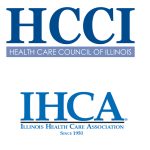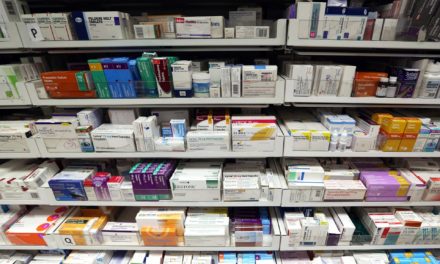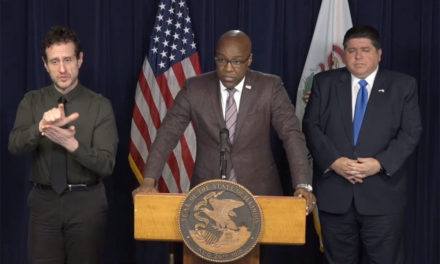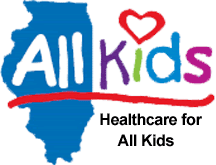
Nurses union head Alice Johnson talks PPE and struggles on the front lines of the COVID-19 crisis

Nearly two months into the new coronavirus crisis, Illinois nurses continue to struggle in acquiring necessary personal protective equipment, according to Alice Johnson, executive director of the Illinois Nurses Association.
“What is happening to nurses and other healthcare workers in this country with what they’re being given is an incredible tragedy and it is a great injustice that we are going into work every day without the equipment to keep themselves safe,” she said.
Johnson spoke with Health News Illinois Thursday morning about what nurses are experiencing on the front lines of the pandemic, the continued need for personal protective equipment and a recently pulled state rule that would have given essential workers like nurses easier access to workers’ compensation if they contract the virus.
Read more below.
HNI: How are things for Illinois nurses in response to the COVID-19 pandemic?
AJ: There’s a lot of struggles out there. We are hearing of nurses not having access to PPE or being given surgical masks when they should be having access to N95 masks. We are hearing more and more of nurses getting sick, their family members getting sick. We even had a member, she was a registered nurse at the University of Illinois hospital, who passed away. We have another member whose husband passed and there is also a member in another unit at the University of Illinois who passed away due to COVID-19. So our nurses are dealing with the difficulties and the stress of the job. They’re dealing with a lack of tools and equipment that they need to do their job and to do it safely. And they’re struggling with grief over the stress of their co-workers getting sick and even co-workers dying. I think that’s incredibly difficult for them at this time, having to deal with both of those things, having an incredibly intense and demanding job where lives are literally on the line. That’s the work that they chose to do, but what they did not sign up to do was to do that work and not be given everything that they need to keep themselves safe. And now they’re doing all of that, in addition to carrying intense grief about their colleagues.
HNI: What have members told you about the ability to access necessary PPE?
AJ: So if they work on a COVID-designated unit, then they’re given an N95 mask. If they work on a unit that is not designated as a COVID unit, they’re given a surgical mask. But what we’re finding is that nurses who are working on the so-called non-COVID units are still getting exposed to COVID and contracting it. So what we’re advocating for is for nurses on all units to have the N95 masks because they need as much protection as possible. What we’re being told is that the employers can say, ‘We’re following CDC standards,’ and they’re only giving the nurses a surgical mask. But the problem with the CDC standards is they are not based on what is going to keep the nurses safe, or what is going to prevent them from becoming a vector for COVID-19 to their colleagues or to their patients. Those standards are based on availability and rationing and trying to preserve the PPE that is available. When you look at what nurses in Illinois and across this country have in terms of PPE, these surgical masks or N95 masks, they are very sad-looking compared to what you see in other countries where healthcare workers are virtually given full hazmat suits. What is happening to nurses and other healthcare workers in this country with what they’re being given is an incredible tragedy and it is a great injustice that we are going into work every day without the equipment to keep themselves safe.
HNI: We’ve heard about the stabilization of hospital beds and ICU beds. Is that having any impact on PPE availability?
AJ: It’s a hard question to answer. A few weeks back, the issue that we were fighting on was the access to the N95 masks. What we’ve seen over time is that the nurses, even on the non-COVID units, are getting sick with COVID. There’s been a lot of effort to get more PPE to hospitals in Illinois, but the policies that are in place are not ones that are sufficient to keep the nurses safe and to keep them from getting infected. And actually, I’m saying nurses but it’s all healthcare workers in the hospital because the health of one healthcare worker affects the health of their colleagues and the patients. Nobody’s health is in isolation in the hospital. So the issue now has been getting the N95 masks universally in the hospital and having them for all the nurses and on all of the units. So even though there’s been a lot done, there’s a lot more that needs to be done. The other thing… we haven’t really seen a slow down in what’s happening at the hospital because the other thing that is happening is a lot of the things that have been put on hold are potentially going to be moving forward now. There’s also discussion about starting to do elective surgeries again, so that’s going to add further complications and affect the availability of PPE as well because there’s going to be more procedures being done at the hospital.
HNI: There have been efforts to increase the healthcare workforce during this time, such as allowing recently retired workers to come back to the workforce. What do you believe is the best way to boost the workforce in Illinois?
AJ: The answer is changing. There needs to be some changes in public policy to make nursing a more attractive job. We know that a very large percentage, I believe it’s between 30 percent and 50 percent of nurses, change jobs or leave the bedside altogether within the initial time of employment after graduating from nursing school and getting their license. That’s due to a multitude of things. Nursing is an incredibly stressful job. And that is exacerbated and made worse by understaffing, rates of injury, workplace violence, sexual harassment. There’s no limit on the number of patients that a nurse can be assigned at any given time. So that means that a nurse can be assigned or given a patient assignment that is unsafe. There have been two decades of studies that show that if nurses are given a patient assignment that’s inappropriate, meaning they’re given too many patients or they’re given patients that are too acute and they can’t provide enough care to those patients, it’s unsafe for both the nurse and for the patient. There are higher rates of mortality, there are higher rates of hospital-acquired infections, everything that you can imagine. It’s worse for the nurse and for the patient. It’s not good for patient safety to not have a limit on the number of patients that a nurse can be assigned. So that’s one issue, understaffing.
We’re seeing that, even though there’s this effort to bring more nurses back into the workforce now, what we’re seeing actually is that there are two extremes for nurses. Some nurses are actually being faced with not having work right now because their departments that they work in or the unit that they work in were closed or it’s not working right now. So they get sent home and they have no work. Then we have the other extreme, where we have nurses that are in the ICU, for example, who are working extended hours, they’re being given a larger patient assignment. So they’re being given too much. Nursing is facing these two extremes of either having no work or just being given an unreasonable and unsafe assignment. At the hospitals where we represent the nurses, we try and push back on those ratios and advocate to get those down to a reasonable and safe level. Only 17 percent of nurses in Illinois are organized. So for most nurses, they don’t have that avenue to advocate and speak out and fight for a safer patient assignment. So there’s a lot of issues right now that make nursing an incredibly difficult job. I think that’s the reason why we don’t have enough nurses at the bedsides.
HNI: The state recently pulled an emergency rule that would have given essential workers, like nurses, who apply for workers’ compensation as a result of contracting COVID-19 the presumption of having caught the virus at work. What were your thoughts on that decision and what impact do you believe this will have for nurses?
AJ: This has a big impact on nurses and their families. The rule was a fair and reasonable one. If you’re a nurse or a healthcare worker, you’re going into work every day at a job that’s putting you at risk, even in the best of circumstances. This rule just said that, ‘OK, there’s a fair and reasonable presumption that if you’re doing this job, it’s putting you in contact with people that have COVID-19 every day, you probably contracted this at work.’ That was just an assumption. It’s not impossible to overcome if there was evidence that indicated something else, then that could have been presented. So it gave nurses and other healthcare workers some sense of safety and security that if they get sick or, even worse, if they pass away, there’s some financial security for them and their families. There’s a benefit for the family if, for example, a worker got sick from COVID and passed away, there’s some financial stability for the family through that reasonable presumption.
By taking that away, I think that sends a message to nurses and healthcare workers and all these other essential workers that are showing up to work every day so everyone can have groceries and healthcare and the things that we all need every day. It sends a message to them that their health and safety, their financial stability and financial security of their families are not as important as profit. All of these businesses that were in opposition to this change, they all depend on these workers showing up every day and doing their job. Their businesses continue to operate and function and bring in a profit because of the sacrifices of these workers. To say these workers have to take this risk every day, but they’re not going to be given this fair and reasonable presumption, is just wrong. They’re asking them to make this huge sacrifice, but they’re not even giving them this small thing that they can depend on that, if something happens to them.
HNI: What more can policymakers do to help nurses during this time?
AJ: Number one is universal masking of N95s. The nurses deserve better PPE than what they have. I think there has to be more fighting for access to testing. It’s been steadily improving, but it’s still not at the level of what we need. There needs to be a change in policy on staffing so that the nurses can have safe assignments. There needs to be more support for collective bargaining within nursing and within hospitals. I think a lot about the nurses who are in non-union hospitals and how they’re left without an avenue for advocacy and to have a collective voice on all of these issues for safety. And it’s really scary to think of nurses at a hospital who aren’t getting the PPE, who are putting their lives at risk and don’t have a way to advocate for the equipment that they need.
There’s one other thing that’s very important. Policymakers need to look at what’s being put out by the CDC. It’s just not good enough and actually, it’s an embarrassment. The standards need to be set on what is safe and not on just what can we do to preserve what we have. In addition to that, there needs to be something done where we ensure that we have the stockpiles of the equipment that we need. There’s money available for that,
At a federal level, there needs to be an invocation of the federal act that forces companies to provide the PPE that we need, and the better PPE that we need like what they have in other countries. And then just putting people’s health and safety over profit. I read a story from the New York Times about why we have a lack of ventilators. Well, the company that had been contracted to produce ventilators had been bought by a larger company that then got out of that contract because the production of ventilators was not profitable enough, leaving the federal government with a lack of ventilators. So people’s health and safety and the equipment that we need have to be prioritized over creating a profit.
Health News Illinois is removing the password on all stories related to the coronavirus. For the latest developments follow us on Twitter at @healthnewsil or check out our website. For complete healthcare coverage, sign up for a free trial to our daily email newsletter.









